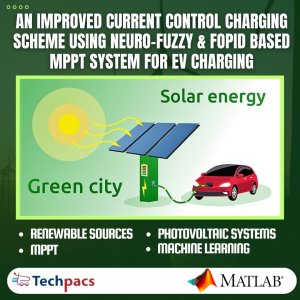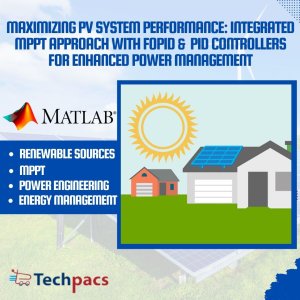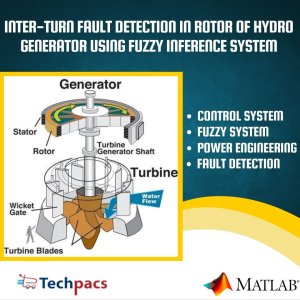Towards Sustainable Transportation through Evolutionary Advances in Bi-Directional EV Charging Systems Using Advanced Control Strategies
Problem Definition
Many research gaps still exist in the domain of AC-to-DC converters and bidirectional charging systems. Despite notable advancements in this field, there is a pressing need to develop more reliable converter topologies that can withstand bidirectional power flow and minimize energy losses. The lack of robust and adaptive control systems is another critical issue, as ensuring secure and efficient charging and discharging operations while protecting battery health remains a challenge. Understanding the impact of different charging scenarios, such as grid-connected charging, discharging, and isolated charging, on battery performance is an essential area for further investigation. Moreover, exploring the influence of various controller schemes on the rectification phase of AC-to-DC converters and bidirectional charging systems is crucial to enhance their effectiveness and overall performance.
These key limitations and problems highlight the necessity of addressing these research gaps to advance the field of AC-to-DC converters and bidirectional charging systems.
Objective
The objective of the research project is to address the existing research gaps in AC-to-DC converters and bidirectional charging systems for Electric Vehicles (EVs) by developing more reliable converter topologies and control systems. The focus is on implementing three main controller strategies - Proportional Integral (PI), Proportional Integral Derivative (PID), and Model Predictive Control (MPC) - to regulate the rectifier's duty cycle during AC-to-DC conversion. The goal is to enable bidirectional power flow between the EV and the grid, ensuring secure and effective charging and discharging operations while maximizing system performance and minimizing energy losses. This will involve designing and analyzing a bidirectional charging system for EVs using an AC grid, incorporating the rectifier with the different controllers mentioned above. The research will also involve studying the system in various scenarios to assess the impact on battery performance, system operation, and energy efficiency, ultimately contributing towards the development of more reliable and efficient AC-to-DC converters and bidirectional charging systems for EVs.
Proposed Work
In this research project, we aim to address the existing research gaps in AC-to-DC converters and bidirectional charging systems for Electric Vehicles (EVs) by developing more reliable converter topologies and control systems. The proposed work focuses on three main controller strategies - Proportional Integral (PI), Proportional Integral Derivative (PID), and Model Predictive Control (MPC) - to regulate the rectifier's duty cycle during AC-to-DC conversion. By enabling bidirectional power flow between the EV and the grid, our goal is to ensure secure and effective charging and discharging operations while maximizing system performance and minimizing energy losses. The use of different controller schemes will be thoroughly studied to determine their effects on the rectification phase of the converters and charging systems.
The proposed project will design and analyze a bidirectional charging system for EVs using an AC grid, incorporating the rectifier with the three different controllers mentioned above.
The system will include a bidirectional battery that can not only be charged from the DC output of the rectifier but also discharge to power the load in the absence of grid input. The bidirectional charging circuit will be controlled by a PI controller for the Buck-Boost converter. The research will involve studying the system in various scenarios, such as grid-connected charging, discharging, and isolated charging, to assess the impact on battery performance, system operation, and energy efficiency. Through this comprehensive study, we aim to contribute towards the development of more reliable and efficient AC-to-DC converters and bidirectional charging systems for EVs.
Application Area for Industry
This project's proposed solutions can be applied in various industrial sectors such as electric vehicle manufacturing, renewable energy integration, and smart grid technologies. The challenges industries face, such as the need for more reliable AC-to-DC converter topologies, adaptive control systems, and investigating various charging scenarios on battery performance, can be effectively addressed by implementing the bidirectional charging system outlined in this project. By utilizing different controllers and analyzing different operational scenarios, industries can benefit from improved efficiency, reduced energy losses, and enhanced system reliability. Additionally, the project's focus on studying the effects of controller schemes on rectification phases can lead to optimized performance and effectiveness in various industrial domains. The integration of bidirectional charging systems can enhance the overall sustainability and resilience of industrial operations, making them more energy-efficient and cost-effective.
Application Area for Academics
The proposed project can enrich academic research, education, and training by addressing critical research gaps in AC-to-DC converters and bidirectional charging systems. It offers an opportunity to develop more reliable converter topologies and adaptive control systems to improve energy efficiency and battery performance.
The relevance of this project lies in its potential to advance innovative research methods, simulations, and data analysis within educational settings. Researchers, MTech students, and PhD scholars can utilize the code and literature from this project to explore new technologies and domains such as electric vehicles, power systems, and control systems.
This project can empower researchers to investigate the effects of different charging scenarios on battery performance and evaluate the impact of various controller schemes on AC-to-DC converters.
It can also provide a platform for hands-on training in designing and analyzing bidirectional charging systems, fostering a deeper understanding of energy conversion and storage technologies.
In the future, the project's scope could expand to include optimization techniques, smart grid integration, and real-time monitoring of EV charging systems. By integrating cutting-edge technologies and research methods, this project has the potential to drive innovation in sustainable transportation and energy storage solutions.
Algorithms Used
The PID Controller, PI Controller, MPC Controller, and AC-DC converter are integral components of the bidirectional charging system for Electric Vehicles (EVs) designed in this project. The PID Controller, PI Controller, and MPC Controller work in tandem to regulate the duty cycles of the system and ensure efficient charging and discharging of the battery. The PI controller specifically controls the Buck-Boost converter in the bidirectional charging circuit, contributing to maintaining stable voltage levels during charging and discharging processes. The MPC Controller aids in predictive control, optimizing the system's performance and enhancing accuracy in adjusting duty cycles. The AC-DC converter facilitates the conversion of AC grid power to DC for charging the battery and enables bidirectional power flow in the system, allowing the battery to discharge to power the load when grid input is unavailable.
Together, these algorithms and components play a crucial role in achieving the project's objectives of efficient bidirectional charging for EVs, enhancing accuracy in system operation, and improving overall efficiency in utilizing battery power.
Keywords
SEO-optimized keywords: research gap, AC-to-DC converters, bidirectional charging systems, reliable control systems, adaptive control systems, charging scenarios, grid-connected charging, isolated charging, battery performance, controller schemes, bidirectional charging system, Electric Vehicles (EVs), AC grid, rectifier, Proportional Integral (PI) controller, Proportional Integral Derivative (PID) controller, Model Predictive Control (MPC) controller, duty cycles, Buck-Boost converter, state of charge, battery current, battery voltage, grid input, power management, energy conversion, energy efficiency, battery management, energy storage systems, power factor correction, energy optimization, powertrain, Smart grids, Artificial intelligence.
SEO Tags
research gaps, AC-to-DC converters, bidirectional charging systems, reliable converter topologies, energy losses, adaptive control systems, charging scenarios, grid-connected charging, battery performance, controller schemes, rectification phase, bidirectional charging system, Electric Vehicles (EVs), AC grid, rectifier, Proportional Integral (PI), Proportional Integral Derivative (PID), Model Predictive Control (MPC), duty cycles, DC output, bidirectional battery, Buck-Boost converter, state of charge, battery current, battery voltage, discharging mode, Battery management, Energy storage systems, Power management, Renewable energy, Power factor correction, Electric vehicle technology, Energy optimization, Electric vehicle powertrain, Smart grids, Artificial intelligence
| Shipping Cost |
|
No reviews found!

















































No comments found for this product. Be the first to comment!